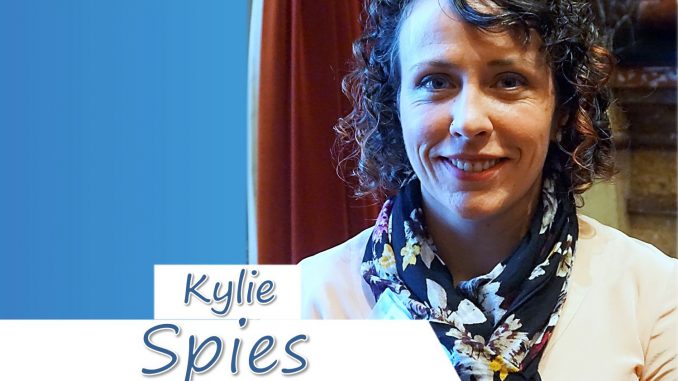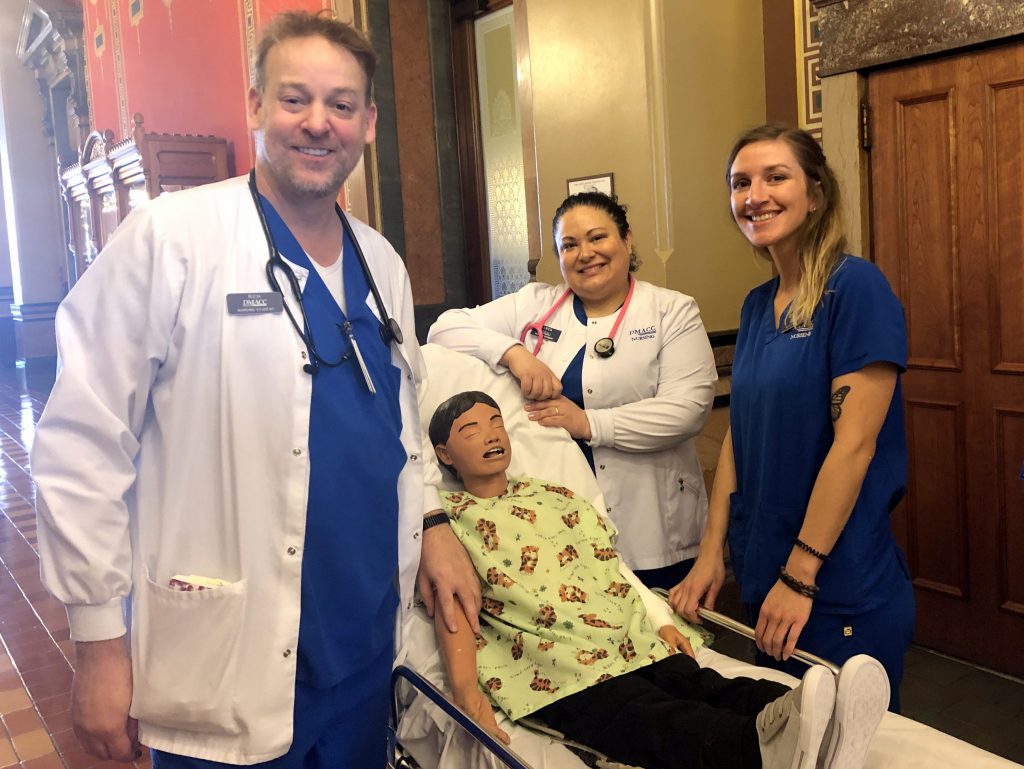
By Senate Intern Kylie Spies, University of Iowa MSW student

Richie Gibbs, Erica Altemeier and Madelynn Rhodes are nursing students at Des Moines Area Community College.
Students from DMACC’s RN training program were on hand for Career and Technical Education Day at the Capitol. They shared with legislators how their program is helping prepare Iowans for high-demand jobs.
Iowa is experiencing shortages in OB-GYNs, mental health providers, nurses and other health professions. In 2018, U.S. News ranked Iowa 36th in the nation in overall health care, and 46th in hospital quality.
State-of-the-art training can help turn things around. The Healthcare Simulation Lab, located on DMACC’s Capitol Center campus, offers high-tech learning opportunities for future nurses and other health care professionals.
While at the State Capitol, nursing students demonstrated surgical technology, hospital newborn care equipment and a child-sized dummy with a pulse. They take pride in the skills they’re gaining, but are well aware of the challenges facing Iowa’s health care system.
Take Medicaid, for example.
Richie Gibbs, Erica Altemeier and Madelynn Rhodes are all in the last semester of their Registered Nurse program. Even before entering the field, the three have witnessed how privatized Medicaid is squeezing providers.
“We are close to the bottom in pay here in Iowa,” Gibbs said.
As of 2017, the U.S. Bureau of Labor Statistics ranked Iowa 48th in the nation in average nursing salary—$57,930, or $27.85 per hour. That includes many nurses with decades of experience.
In addition to the usual college courses, nursing students must take clinicals. Clinicals involve shadowing a practicing nurse to get hands-on experience in the field. DMACC nursing students have seen overworked, underpaid hospital staff that cannot keep up with the demand for care.
For many nursing students, the first career step is as a Patient Care Technician. PCTs are entry-level health care workers who do hard physical labor, like feeding, dressing and bathing patients. Most make only about $13 per hour.
Rhodes, who works as a PCT in a facility for seniors with dementia, says patients pay more than $100,000 per year at the facility, and that her pay is higher than many of her classmates.
Altemeier received a grant from Central Iowa HealthWorks to help pay for tuition, books and gas to get to her classes and clinicals. Iowa HealthWorks is a United Way program that helps adult learners reach their health care career goals. Altemeier is grateful for the assistance, and says she wishes more money was available to help Iowans get into the profession. Some of her classmates come from other states to take advantage of DMACC’s program, but always intend to return home where they’ll make more money.
Altemeier wants to see the state invest in people who are interested in becoming nurses or Patient Care Technicians, as well as competitive salaries that will keep talented nurses here in Iowa.
Iowa cannot provide adequate health care services to those most in need without a bigger investment. Let’s not continue this race to the bottom.
